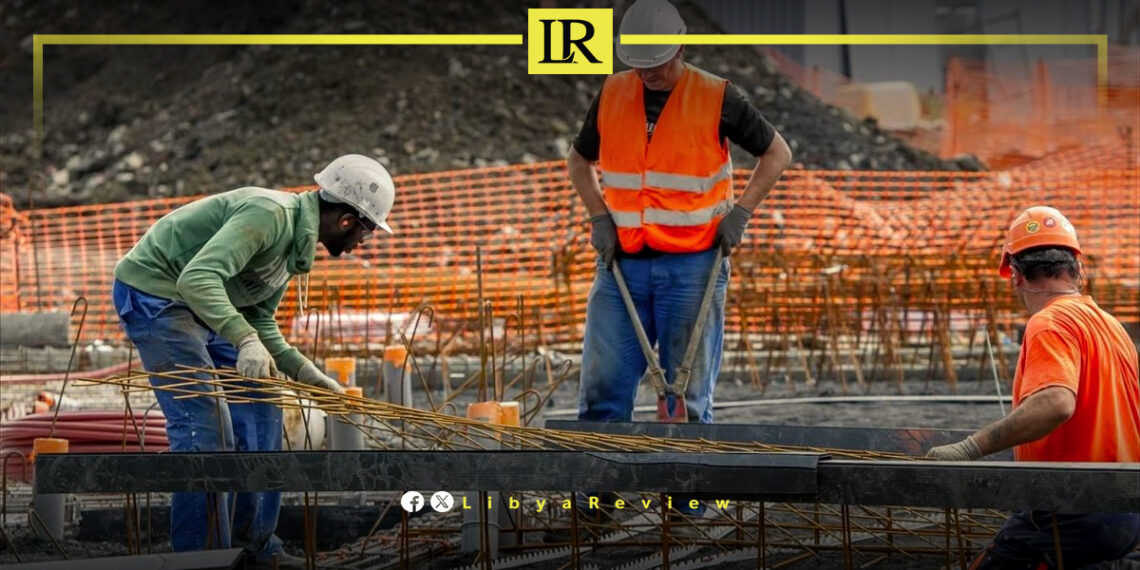The General Manager of the Public Works Construction Company in Casablanca, Mohammed Bouzoubaa, revealed that while the Libyan market is promising, the company is currently facing liquidity problems. This issue arises because Moroccan banks are refusing to provide guarantees, citing the absence of commercial relations with Libyan banks.
According to Al-Shorouk newspaper, the Moroccan company, which is the largest listed construction firm in Morocco, is facing this challenge as it undertakes its first two projects in Libya, with a total value of 500 million dirhams ($50 million).
The Moroccan company plans to build housing units in the cities of Derna and Al-Qubbah, which were severely damaged by last year’s cyclone, making it the first Moroccan construction firm to enter the Libyan market.
Bouzoubaa highlighted the significant housing shortage in Libya, estimating a deficit of around 20,000 units in major cities. He also noted the strong competition from Turkish, Egyptian, and Chinese companies.
He further explained that obtaining guarantees from banks where the company’s headquarters are located is essential for any foreign company operating in Libya. This would enable the company to participate in larger deals and projects and secure loans from local banks to provide the liquidity necessary for its operational activities.
Libya has been in chaos since a NATO-backed uprising toppled longtime leader Muammar Gaddafi in 2011. The county has for years been split between rival administrations.
Libya’s economy, heavily reliant on oil, has suffered due to the ongoing conflict. The instability has led to fluctuations in oil production and prices, impacting the global oil market and Libya’s economy.
The conflict has led to a significant humanitarian crisis in Libya, with thousands of people killed, and many more displaced. Migrants and refugees using Libya as a transit point to Europe have also faced dire conditions.
The planned elections for December 2021 were delayed due to disagreements over election laws and the eligibility of certain candidates. This delay has raised concerns about the feasibility of a peaceful political transition.
Despite the ceasefire, security remains a significant concern with sporadic fighting and the presence of mercenaries and foreign fighters. The unification of the military and the removal of foreign forces are crucial challenges.


